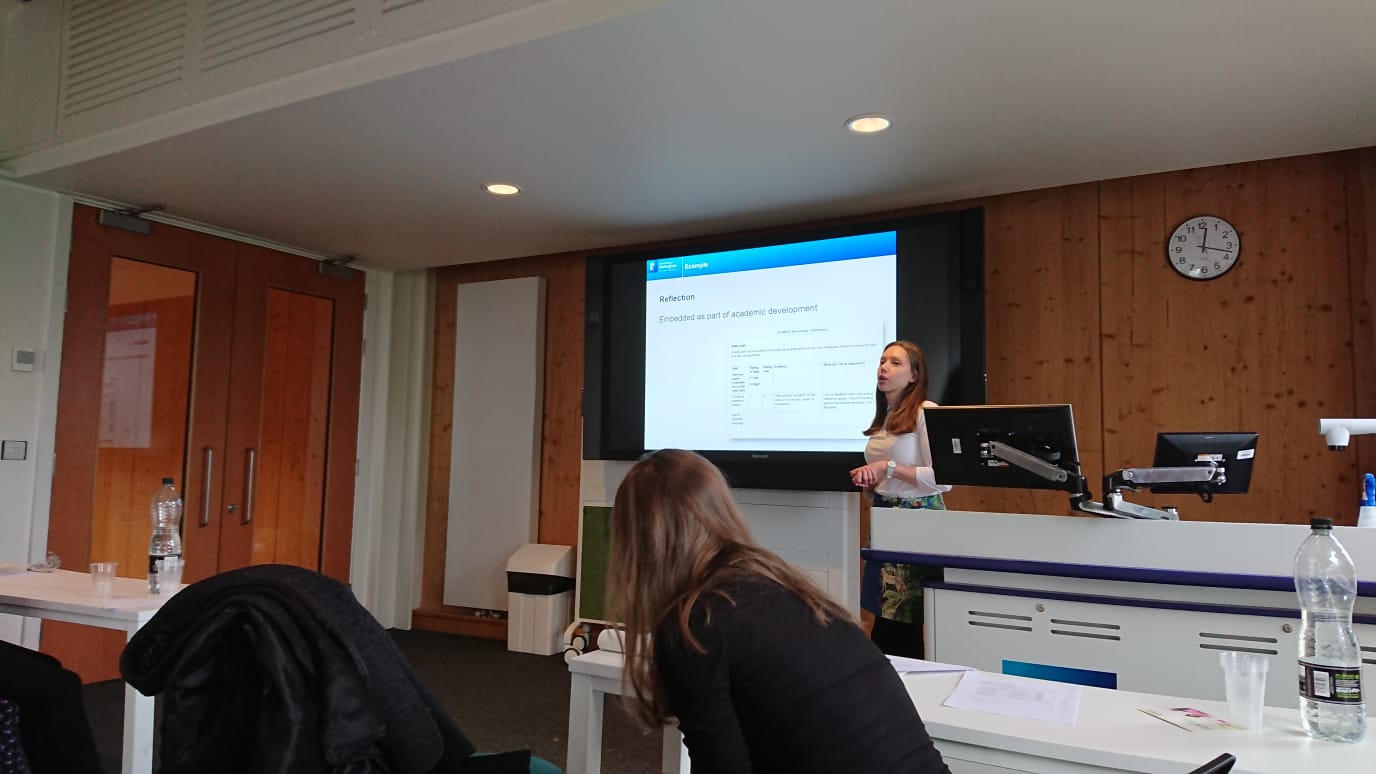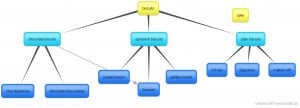
June 7, 2019, by Emma Whitt
Teaching and Learning Conference 2019
In the May meeting of PLATE, we discussed papers and ideas from the recent University Teaching and Learning Conference (#UoNTLC2019).
However, before that got underway we were tasked by Emma B to use a browser-based mind mapping tool, bubbl.us
For free, users can create up to three mind maps, with payment needed for creating more. As a tool to use on a one-off occasion in lectures, the free version seems to be sufficient. Biscuits are a popular and serious topic in the school so we had to create a mind map about biscuits. Here is mine:

I was working on a Windows Surface tablet and found the software easy to use without any particular instructions. With a little more time and creativity, I’m sure it would be possible to create a masterpiece. Other mind mapping software is available, specifically Mind View on university computers.
Technology
Using technology for mind mapping led us on to the conference and the point made by Richard Windle: “why use technology in teaching?” Surely a pen and paper are sufficient for mind maps?! Richard spoke about one of the points of using technology is that it should enable you to do something you may not be able to do otherwise. My colleague, Mark and I, saw a great example of this from Amanda Rasmussen, a lecturer in the School of Biosciences. Amanda used technology to link lectures (about plants) with the real world (plants) and how technology can be incorporated the help with that. Amanda gave us an overview of how they had used Actionbound to create a treasure hunt to help students apply their knowledge. When on the treasure hunt, students used the app to answer questions and submit photos. Amanda showed us some evidence that questions related to the information in the treasure hunt were answered better in the exam compared to questions related to information not in the treasure hunt. Students also seemed to really enjoy the treasure hunt.
Professional Competencies
Professional competencies were a key theme of the conference. In a paper I contributed to, we found out that our audience thought that students are developing skills in their degree but may not know they are developing the skills or be able to articulate these to others. The idea of being transparent about what we expect students to learn is a wider issue than professional competencies and is prevalent across education. Making clear what we want students to learn and develop is the core feature underlying work around assessment in the university. I attended a talk from Judith Wayte and Emma Weston (Biosciences) about their professional skills module and about how they mapped skills to modules in the Biosciences courses. This involved a phenomenal amount of work but the value is obvious – staff and students are able to clearly see which skills are developed where in the curriculum.
Another project that involved getting staff to think clearly about the outcomes of education was presented by Nick Mount (Geography). Nick has been working on a structured system to design or redesign a programme to ensure the integration of curriculum and assessment. Some of the key underlying ideas related to being clear about what we want students to gain from our programme, articulating this clearly and involving students in assessment. I’m really excited about the potential of this work.
Keynote
The keynote, Pauline Kneale (University of Plymouth), spoke about some ways that university education may need to change in the future. One suggestion was removing lectures in the final year of undergraduate courses and focussing on research instead. Personally, I really like this idea. By the final year, we hope that students are somewhat equipped with skills for independent learning and to utilise these; they should be creating wonderful things and contributing to the subject. Another idea from Pauline was removing exams. This would fit well into the final year with a move towards research and creation, where coursework would be a much more relevant type of assessment. We do feel somewhat constrained by large class sizes, but also feel that education shouldn’t be driven by administrative problems.
Reflecting on these points and discussions, we need to think and keep working on clarity around what our educational outcomes are and how assessments and other learning activities give students the best opportunities to exhibit these.
And, yes, the lunch was good.
What did you think of the conference? If you have any comments about this article, feel free to tweet us at @notts_psych, or tweet the author at @emmajwhitt
Written by Dr Emma Whitt (Assistant Professor, School of Psychology)

I read a lot of blog posts and i never heard of a topic like this. I Love this topic you made, really amazing.